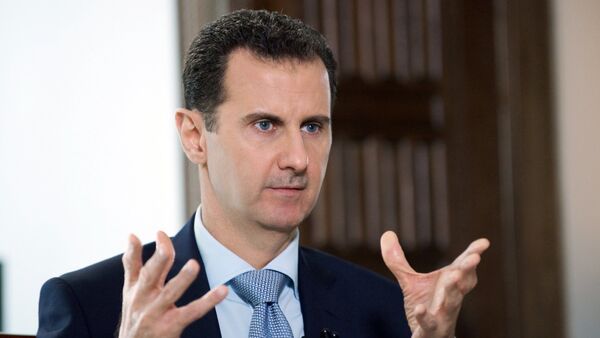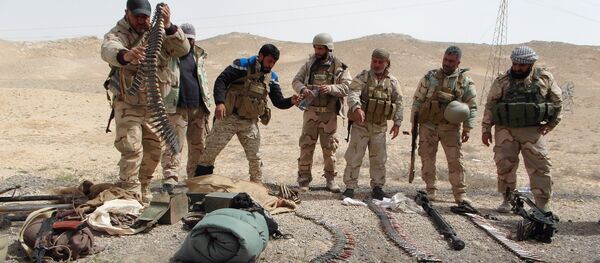WASHINGTON (Sputnik) — Paolo von Schirach is a Professor of International Relations at BAU International University in Washington, DC, and publisher and editor of the Schirach Report.
"Assad’s comments mean his government will be firmly in the lead throughout any future process leading to a new constitution," Schirach stated on Wednesday. "Reading between the lines, this means Assad's government will have inordinate influence in shaping any constitutional changes."
Schirach noted that Assad had agreed to include opposition groups in the national unity government, but would remain clearly in charge.
"This general statement does not imply equal status for the opposition. In the end, the ability of the opposition to influence future political changes is directly related to their bargaining power, that is their military strength."
The opposition groups were in no condition to renew any military operations against the Damascus government, Schirach pointed out.
"The opposition can obtain more at the negotiating table only if it could credibly threaten to walk out, resume military operations against Assad, and win a renewed conflict. This is not the case. They know it; and Assad knows it."
The interview revealed that Assad believed he was still in control, and would retain control in Syria, Schirach continued.
"No substantive role for the opposition is envisaged."
Moreover, Assad was confident that he would be able to reassert control over all Syria, Schirach noted.
"This statement shows Assad's intent. Once again this tough position underscores that Assad is implicitly telling the world that —with Russia's critical help — he won the war. The opposition lost. They should get adjusted to this reality."
"There is no hint that this may be just a temporary arrangement, subject to review. On the contrary, this Syria-Russia alliance, including Russian military bases in Syria, is permanent."
Given all this, Schirach added, the opposition has very few options.
"In the end, Assad stays, in full control. Russia keeps the bases, and gains politically as the big power that ultimately decided the outcome of a long conflict."
If opposition leaders find this likely political settlement unpalatable, their only choice is to resume the fighting, knowing they would have to fight against a strengthened Damascus government on their own, Schirach concluded.



